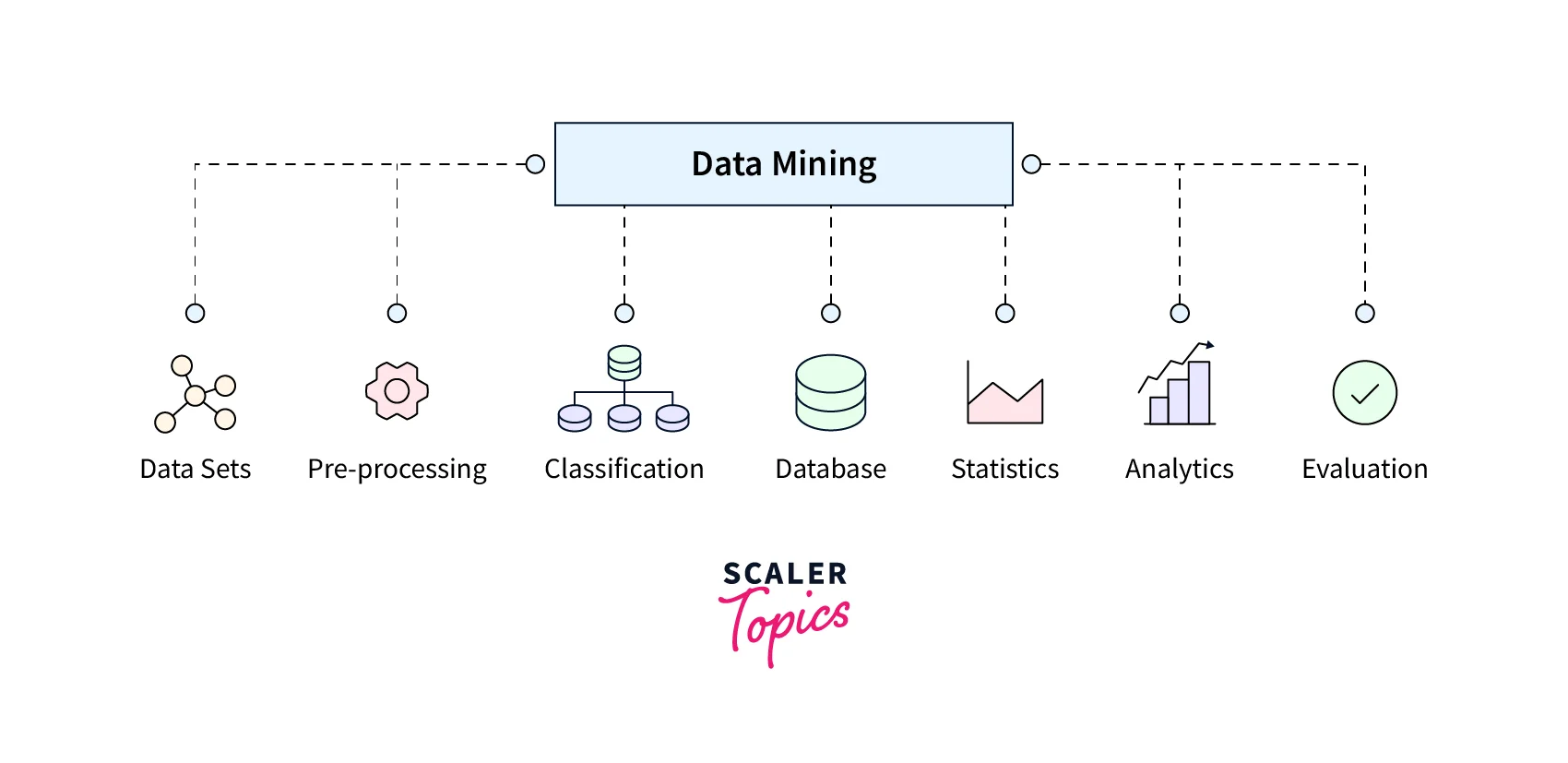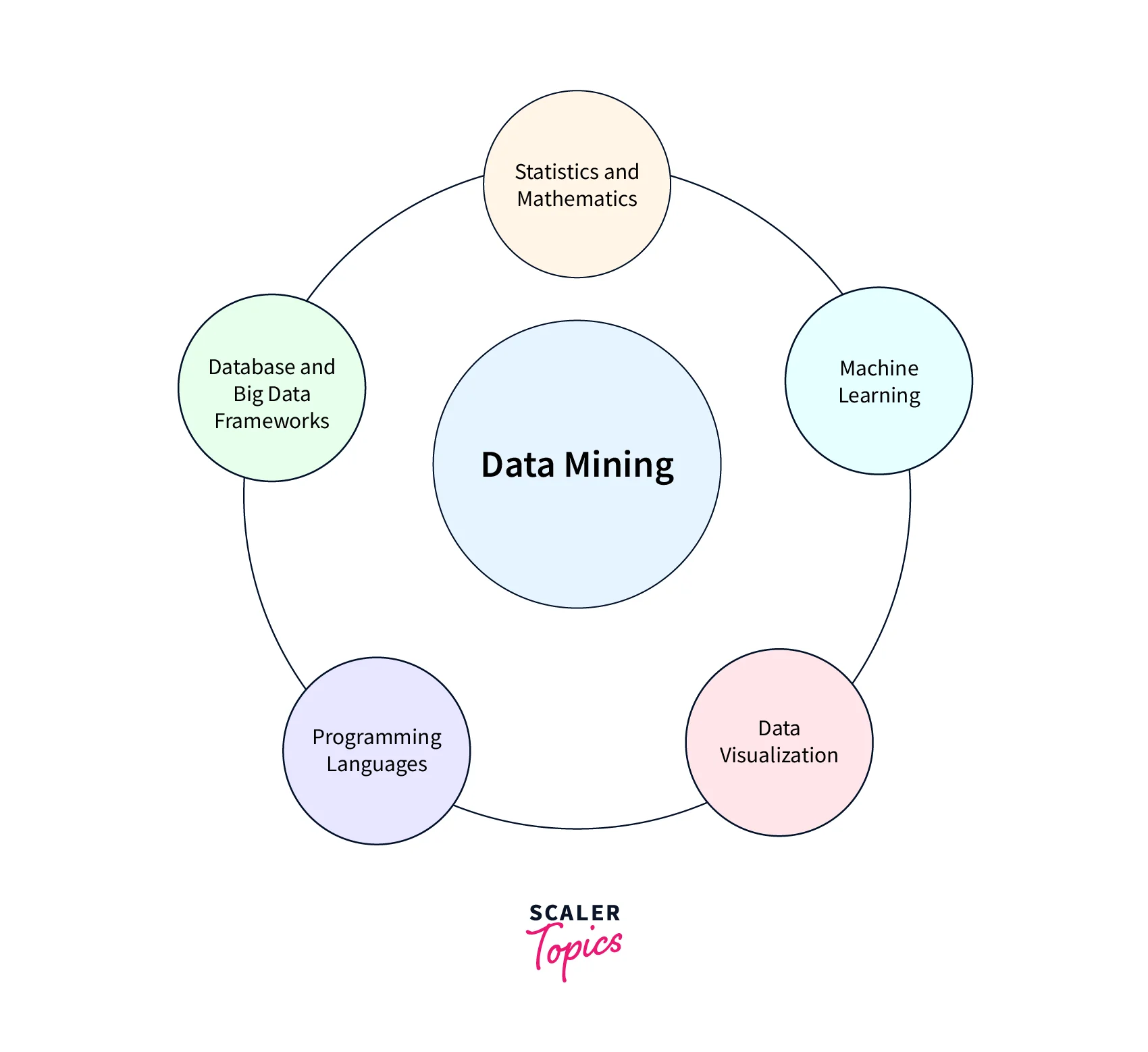Skills Required for Data Mining
Overview
Data mining is the process of discovering patterns and insights from large datasets. It involves the use of various techniques, such as machine learning, statistical analysis, and database systems. The field of data mining has become increasingly important as organizations seek to make better use of the vast amounts of data they collect. As a result, careers in data mining are in high demand, with opportunities available in a range of industries such as healthcare, finance, and e-commerce.
What is Data Mining?
Data mining is the process of analyzing large datasets to uncover hidden patterns, correlations, and insights that can help organizations make better decisions. It involves using various techniques, such as machine learning, statistical analysis, etc. The ultimate goal of data mining is to extract useful information from data that can be used to improve business processes, reduce costs, increase efficiency, and gain a competitive edge.
For example, suppose you work for an online retailer and want to improve your sales by identifying which products will likely be purchased together by customers. You have access to a large database of customer transactions that includes information on which products were purchased together. Using data mining techniques, you can identify which products are frequently purchased together and use this information to recommend additional products to customers.
For example, if customers who purchase laptops also tend to purchase laptop bags, you can recommend laptop bags to customers who are buying laptops. This can help increase sales and improve customer satisfaction.
Data mining can be applied to a wide range of industries, including healthcare, finance, retail, and e-commerce. With the rise of big data, the importance of data mining has become even more critical, making it a valuable skill set for professionals in various fields.

Why Choose Data Mining?
There are several reasons why one might choose to pursue a career in data mining. First, data mining is a rapidly growing field, with increasing demand for professionals who can extract valuable insights from large datasets. As organizations continue to collect more and more data, the need for skilled data mining professionals will only continue to rise. Data mining professionals are just one career path in the diverse data science career landscape, one of the fastest-growing fields in the world today. The U.S. Bureau of Labor Statistics has projected a 36% growth in data science jobs through the next decade.
In addition, data mining can be a highly rewarding career path. By uncovering valuable insights from data, data miners can help organizations make better decisions and drive business growth. This can lead to job satisfaction and a sense of purpose in one's work.
Furthermore, data mining can offer a high level of job security, as the skills and expertise required for data mining are in high demand.
Steps to Launching a Successful Career in Data Mining
If you're interested in launching a successful career in data mining, here are some steps you can take:
- Obtain a degree in a STEM field:
A degree in a STEM field, such as computer science, mathematics, or statistics, can provide you with a strong foundation in the skills required for data mining. - Enroll in a data science certification or boot camp program:
There are numerous data science certification and boot camp programs available that can provide you with hands-on training in data mining, programming, and machine learning. - Gain hands-on experience:
It's essential to gain hands-on experience working with data and using data mining tools and techniques. You can do this through internships, personal projects, or online data mining-related competitions. - Build a portfolio:
Building a portfolio of data mining projects that demonstrate your skills and expertise can be a powerful way to showcase your abilities to potential employers. - Apply for jobs:
Once you have the required skills and experience, you can start applying for jobs in data mining. Look for job openings in industries that interest you and tailor your application to highlight your relevant experience and skills.
Educational Requirements for Data Mining
To make a career in data mining, a Bachelor's or Master's degree in a STEM field such as computer science, mathematics, statistics, or data science can be beneficial. However, having a degree is not a mandatory requirement for data mining jobs.
Additionally, obtaining a Data Science Certification can help demonstrate the knowledge and skills required for a career in data mining. These certifications provide a comprehensive understanding of data mining concepts, data analysis techniques, and machine learning algorithms.
It's worth noting that while having a degree or certification can be beneficial, there are other ways to gain the necessary knowledge and skills for a career in data mining, such as online courses, boot camps, and real-world experience. In today's job market, employers often seek a combination of formal education and practical experience.
Technical Skills Required for Data Mining
The most common data mining prerequisites for technical skills to make a career in this field are shown below:
- Mathematics:
One of the most important data mining prerequisites is a strong foundation in mathematical concepts such as linear algebra, calculus, and probability theory. These mathematical concepts are used to create models and algorithms that can analyze large datasets and identify patterns and relationships between variables. - Statistics:
Statistics is another data mining prerequisite because it provides tools and techniques for analyzing data and making inferences from it. Statistical techniques such as regression analysis, hypothesis testing, and probability distributions are used to create models and algorithms to identify data patterns and relationships. - Programming Languages:
Proficiency in programming languages like Python, R, SQL, and others is necessary to clean, manipulate, and analyze data to extract insights. Programming skills help in automating repetitive tasks and building scalable data mining pipelines. - Machine Learning:
Machine learning algorithms play a crucial role in data mining, so understanding how different algorithms work and how to apply them can be beneficial. Building, training, and tuning models for classification, regression, clustering, and other tasks is an important skill for data mining professionals. - Database Systems:
Having a solid understanding of database systems and management is essential for data mining. Knowledge of SQL and other database querying languages can help in working with large datasets and optimizing data mining workflows. - Data Visualization:
Data visualization skills are important for effectively communicating findings and insights. Understanding how to present data visually and use tools like Tableau, Power BI, seaborn, and matplotlib can help in presenting data clearly and concisely. - Big Data Processing Frameworks:
With the increase in data size and complexity, knowledge of big data processing frameworks like Hadoop, Spark, and NoSQL databases is becoming essential for data mining professionals. These frameworks help in processing and analyzing large datasets efficiently and effectively.

Interpersonal and Analytical Skills for Data Mining
The most common data mining prerequisites for interpersonal and analytical skills to make a career in this field are shown below:
- Strong Communication Skills:
Data mining professionals need to be able to communicate complex technical concepts to non-technical stakeholders. They need to be able to explain the insights and patterns they have discovered in the data clearly and concisely. Good communication skills are essential for collaborating with colleagues, presenting findings to management, and providing guidance to other teams within the organization. - Problem-Solving:
Problem-solving skills are essential data mining prerequisites for data mining professionals. They need to be able to break down complex problems into smaller components and derive meaningful insights from them. Being able to approach a problem from multiple perspectives and find innovative solutions is an important skill for data mining professionals. - Domain Expertise:
Domain expertise is essential for data mining professionals to understand the context of the data they are working with. Understanding the business domain, industry trends, and customer needs can help in deriving meaningful insights from the data. Having subject matter expertise can also help in identifying relevant variables, selecting appropriate models, and interpreting results accurately. - Business Acumen:
Understanding the business context and objectives is crucial for data mining professionals. Being able to align data mining initiatives with business goals, communicate the impact of insights, and identify growth opportunities are important skills for success in data mining. Strong business acumen can help translate insights into action and drive business outcomes. - Presentation Skills:
Data mining professionals need to be able to present their findings to stakeholders clearly and compellingly. They need to be able to create data visualizations, slides, and reports that effectively communicate the insights they have discovered. Good presentation skills are essential for getting buy-in from management, building consensus among stakeholders, and driving action based on the insights derived from the data.
Conclusion
- A successful career in data mining requires certain data mining prerequisites, which are a combination of technical, interpersonal, and analytical skills.
- Technical Skills such as mathematics and statistics, programming languages, machine learning, database systems, data visualization, and big data processing frameworks are essential for working with large datasets and drawing meaningful insights. Interpersonal skills like strong communication, problem-solving, domain expertise, and business acumen are also crucial for collaborating with cross-functional teams, deriving meaningful insights, and translating them into business outcomes.
- While having a degree in a STEM field and obtaining a data science certification can be helpful, these are not mandatory requirements.
- With the right skills and experience, anyone with an interest in data mining can launch a successful career in this rapidly growing field.
